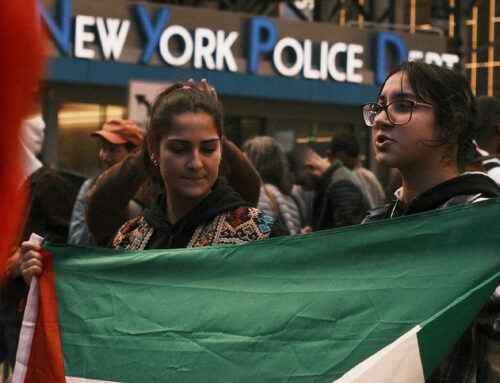World Health Organization Turns Up Heat on Nations to Sign Pandemic Treaty
Amid growing resistance and concerns about sovereignty, the WHO is finalizing its Pandemic Accord for its annual meeting in May
Wednesday, April 10, 2024
By Kevin Stocklin
Reprinted from The Epoch Times
As the deadline approaches for the 194 member nations of the World Health Organization (WHO) to sign agreements granting broad new powers to the U.N. subsidiary, its advocates are turning up the heat on member countries to get on board, despite growing resistance to the deal.
On March 20, WHO ambassador and former U.K. Prime Minister Gordon Brown hailed a campaign by a “100+ pantheon of global leaders” urging member nations to sign “to bolster the world’s collective preparedness and response to future pandemics.” Mr. Brown also called for worldwide action to “expose fake news disinformation campaigns by conspiracy theorists trying to torpedo international agreement for the Pandemic Accord.”
At stake is a new global medical treaty, as well as amendments to existing International Health Regulations (IHRs), which together would make the WHO the central authority during pandemics and other WHO-declared health crises, while collecting tens of billions of dollars. Critics say the WHO has studiously avoided calling the agreement a treaty because treaties typically require approval from national legislatures, and in the case of the United States, by two-thirds of the Senate.
What has instead been deemed the Pandemic Agreement or Pandemic Accord, together with amendments to the IHRs, is scheduled to be approved in Geneva, Switzerland, at the World Health Assembly’s annual meeting held between May 27 and June 1. On March 18, more than 80 ministers and church organizations added their voices, telling delegates from member countries that “reaching an agreement that ensures that everyone, everywhere can benefit from scientific advancement” is a moral obligation.
How Much Power Will the WHO Get?
Despite these efforts, however, some still have doubts. One of the primary concerns that critics have raised is that countries would cede authority to the WHO once it declares a “health emergency.”
However, WHO advocates say such concerns are unfounded and that giving voice to them could jeopardize the approval process. “No country will cede any sovereignty, and no country will see their national laws set aside,” Mr. Brown said in his statement.
However, the language in the March 13 draft of the treaty appears to be compulsory rather than suggestive, stating throughout the document that “the Parties commit to …” and “the Parties shall …,” with the word “shall” used more than 160 times. The IHR amendments also state that member states “recognize WHO as the guidance and coordinating authority of international public health response during a public health Emergency of International Concern and undertake to follow WHO’s recommendations in their international public health response.”
Other areas of concern regarding sovereignty include a directive that “health measures” stipulated by the WHO “shall be initiated and completed without delay by all Parties” and that “State Parties shall also take measures to ensure Non-State-Actors operating in their respective territories comply with such measures.” References to the documents being “non-binding” to member states have been removed.
“They are trying to make out that this is some mild feel-good agreement that won’t really affect anyone and therefore doesn’t need to go to national legislatures,” Dr. David Bell, a public health physician who formerly worked with the WHO on infectious disease diagnostics, told The Epoch Times. He has been tracking the progress of the agreement with a critical eye. Supporters of the agreements have also asserted that, regardless of what the documents say, the treaty and IHR amendments are toothless because the WHO will have no authority to enforce any of its directives or recommendations and cannot force lockdowns or quarantines on member nations.
However, a 2022 petition signed by 15 U.S. state attorneys general argues that the Department of Health and Human Services could have such authority once the WHO declares a health emergency. The state AGs wrote in protest of a Health and Human Services’ decision on Jan. 19, 2017, “one day before President [Barack] Obama’s second term expired,” to give the Director-General of the WHO the authority to declare a public health emergency within the United States.” The AGs called it “an extreme violation of both State and federal sovereignty.”
Is a Pandemic Treaty the Solution?
Another concern, critics say, is that the process of signing over new powers to the WHO has been needlessly rushed and avoids the public discussions and debates that should be part of the process when countries enter into treaties. “Pandemic risk is characterized as an ‘existential threat to humanity’ and is being used to justify proposed amendments,” according to a report by a research group at the UK-based University of Leeds, co-authored by Dr. Bell.
The report argues that, based on the WHO’s own data, the evidence doesn’t support the urgent need for or the benefit of giving more power to the WHO. What the WHO claims is an escalating frequency of pandemics can be largely explained by improved diagnostic testing in recent decades, the authors say, and the proposed remedy of centralizing pandemic response within the WHO is unjustified.
Many policy analysts have argued that the WHO’s actions during COVID-19 did little to help the public and may have even exacerbated the crisis.
“The WHO should have played an important role in sharing information with member nations during a global pandemic, but instead it demonstrated that it could not and would not share information in a timely and accurate manner,” the state AGs wrote in their petition. “Instead of reporting public health information, the WHO chose to repeat Chinese propaganda regarding COVID.”
The WHO agreements also require member nations to pay in billions of dollars to enable the organization to carry out its new duties. “This agenda is supported by unprecedented annual financial requests,” the Leeds University report reads, including $36 billion in new member contributions and an additional $10 billion for what the WHO calls “One Health” interventions.
One Health, as defined in the Pandemic Agreement, is “an integrated, unifying approach that aims to sustainably balance and optimize the health of people, animals, and ecosystems.” A One Health approach could effectively expand the authority of health officials into areas such as farming, pollution, and climate change.
US States Push Back
Several U.S. states have taken steps to ensure that state authority is not superseded by the WHO agreements.
In May 2023, Florida passed a law that state health officials “may not adopt, implement, or enforce an international health organization’s public health policies or guidelines unless authorized to do so under state law, rule, or executive order issued by the Governor.”
“In this bill we formally reject W.H.O. and any of these international organizations,” Florida Gov. Ron DeSantis said. In March, the Louisiana state Senate unanimously approved a bill stating that “the World Health Organization, United Nations, and the World Economic Forum shall have no jurisdiction or power within the state of Louisiana.” That bill moved to the state House of Representatives for consideration.
Tennessee lawmakers are currently working on legislation to give citizens the ability to “nullify” mandates that conflict with their constitutional rights. Public support for this legislation is growing, insiders say. “Nullification is basically standing up to an unconstitutional law, rule, regulation, or executive order,” Karen Bracken, founder of Tennessee Citizens for State Sovereignty, told The Epoch Times.
RELATED:
Largely Unnoticed, World Health Organization Moves Forward with Global Governance Plan
This Dangerous Lawsuit Reveals How Biden Will Do the World Health Organization’s Bidding
World Health Organization Agreement: Health Care “Tower of Babel”
World Health Organization’s Pandemic Agreement Threatens National Sovereignty, Free Speech, and Life
World Health Organization Agenda To Track And Trace Everyone To Advance In 2024
Behind Closed Doors, the U.N. and World Health Organization Pushes Global Pandemic Accord
World Health Organization Launches Global “COVID Certification” System
Yes, The World Health Organization Treaty Really DOES Limit American Sovereignty
“No Precedent”: Joseph Robinette Biden, Jr. Moves to Bind U.S. to Future World Health Organization Pandemic Policies
The 7 Most Outrageous Moments of the World Economic Forum 2024
New World Order / The Great Reset — With Jack Hibbs & Charlie Kirk






Leave a Reply, please --- thank you.